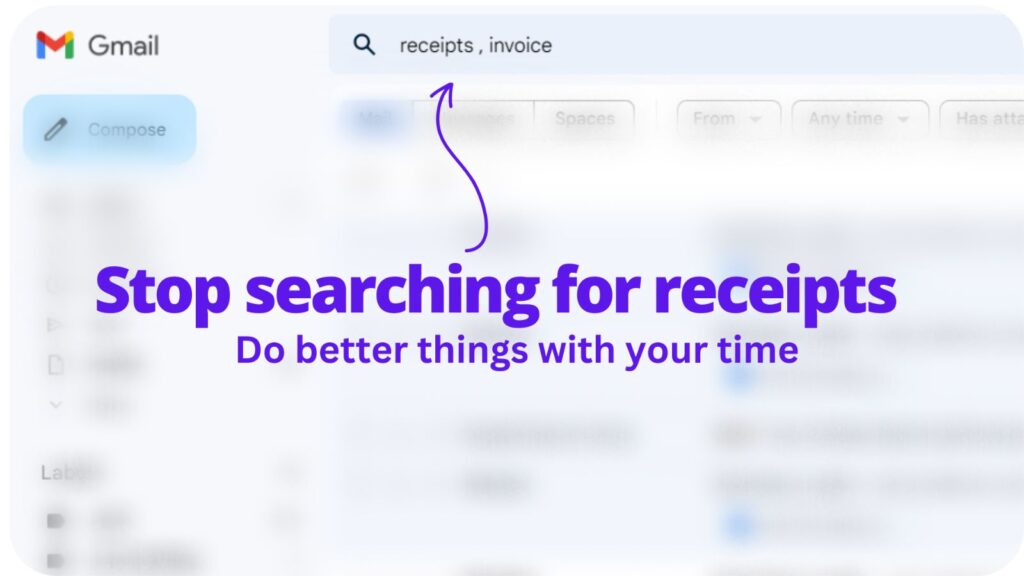Picture this, you’re running a bustling business, but when it comes to managing business receipts, you’re a bit lost. Sound familiar? Don’t sweat it. Sure, these small slips of paper might not look like much, but they’re the unsung heroes of your financial story, helping with everything from accounting to tax preparation.
We’ll chat about why they’re so darn important, the shift to digital, and even share a few pointers on keeping them organized. Whether you’ve been in the game for years or are just starting out, this guide will give you the lowdown on managing business receipts like a pro.
The Importance of Business Receipts
Linking Receipts to Financial Health
Imagine having a big box. Now, think of every business receipt as a piece of a puzzle. For example, you bought some pens from an office supply store. You get a paper receipt. This receipt is a small clue. It tells you about the money spent. So, think of your business as a puzzle.
To see the full picture of your business’s health, you need every piece. Therefore, slips like sales slips paid bills, and invoices are crucial. They give a clear view of all the money going in and out. In other words, they show the financial health of a business.
Legal Implications and Compliance
Now, let’s chat about rules. Every small business owner must follow some rules. Most importantly, during tax season, they must show where money was spent. They can use cash register tapes, sales receipts, or other documents.
Above all, these documents serve as proof during tax time. For instance, if the internal revenue service asks, “Did you really spend money on this?”, you can show your receipt. Consequently, receipts help in avoiding trouble. They prove you’re playing by the rules.
A Shield Against Audits
The audit is a big word. But, think of it as a check. Sometimes, people want to check if a business owner is honest about money. Here, business receipts come to the rescue. They are like shields.
Receipts, like deposit slips or credit card statements, act as supporting documents. With your sales slips, deposit information, and even gift receipts, you show proof.
All in all, it’s about having good records. Not only does it save you during tax returns, but it also gives peace of mind. For every penny spent, there’s a paper trail. And that’s a smart way to do business.
Varieties of Business Receipts
Physical vs. Digital Receipts
Physical receipts come from cash registers. You can touch them. But they can fade or get lost. On the other hand, digital receipts are in emails. They’re eco-friendly and won’t fade. But, devices must be safe. If lost, so are the receipts. Both are essential for tax season and business expenses.
Invoice Receipts vs. Sales Receipts
Invoice receipts say, “You owe me money.” They track money expected later. Sales receipts are given right away. They confirm payment. Both help during tax time. They act as proof of payment and support items in financial statements. Keeping and organizing receipts, whether invoices or sales, is vital.
Temporary vs. Permanent Receipts
Some receipts are temporary. For example, a toy’s receipt becomes useless if you return the toy. Mainly, these are for small expenses.
Permanent receipts, like for machinery, are kept safely. They’re essential for tax filing and big business expenses. Both types help track where money goes. Whether packing slips or credit card statements, keep them safe. They’re crucial for taxes.
How Business Receipts Facilitate Bookkeeping
The Role of Receipts in Ledger Entries
Picture a big book called a “ledger.” Every time a business spends or receives money, it’s written here. Paper receipts guide what to write. Say, a small business owner buys something. They get a receipt. This paper tells how much was spent and where.
So, in the ledger, they know what to jot down. Whether buying or selling, receipts make the ledger complete. It’s like having all the puzzle pieces.
Receipts as Verification Tools
Ever returned a purchased item? The store asked for a receipt, right? In business, receipts are proof. They show a deal happened. When tax time rolls around, receipts show proof of payment. They’re like a trusty friend saying, “This is true.” Be it for tax deductions or checking with a certified public accountant, receipts stand as proof.
Organizing Receipts for Easier Reconciliation
Stacks of paper receipts can be messy. When matching them with a bank account, it’s tricky. Organizing is the answer. Think of sorting them by type. Grouping receipts by month or type helps. Digital records are even handier. Scanned and stored on a computer, and easy to find. But always back them up.
Embracing the Digital Age: E-Receipts in Business
The Rise of E-Receipts
Before, we got paper receipts. Now, it’s often an email. Cool, right? More shops and services use e-receipts today. They’re quick and easy. And, no more lost papers. Just check your email, and there it is.
Advantages of Electronic Receipts
Firstly, e-receipts save trees. No need for paper. Secondly, they’re safe. Imagine if water spilled on papers. With e-receipts, no worries. Also, it’s easy to keep track.
Think about a small business owner. When it’s time for business taxes, no searching. The e-receipts are ready in their email. That’s super helpful. Plus, you won’t lose them. They stay safe online. And, if you shop, no more messy wallets. Just your phone.
Tools and Platforms for E-Receipt Management
So, how do we handle these e-receipts? With special tools. Some apps connect to your credit card. Buy something and boom, the receipt is in the app. Handy, right? There are other tools too. Some help with taxes. Some show where money goes. Like raw materials or transportation expenses.
Others help small businesses. They keep things organized. Every business expense is tracked. Every tax receipt saved. All in one spot.
Best Practices for Managing Business Receipts
Safe Storage Solutions
Firstly, let’s talk about safe storage. Imagine your receipts as toys. You wouldn’t leave them everywhere, right? That’s messy. Instead, you use toy boxes. For receipts, there are special places too. Some use receipt books. Some prefer files or folders. That’s for paper receipts.
But, what about digital? Email receipts and other records are common. Therefore, it’s smart to have backup. Think of it as a digital treasure chest. This way, your business expenses are all in one place. No stress during tax time.
Receipt storage tips can also be invaluable in ensuring you maintain organized and easily accessible records
Regularly Scheduled Audits
Next, let’s think about checks. Not the money kind, but checking your stuff. After all, having good records helps. But, how? Think of it as an inventory count. Every month, check your inventory.
Similarly, businesses should check receipts. This is called an audit. It’s like a big review. For instance, see if all sales tax is right. Or, if travel expenses are tracked. It helps keep accurate records.
Employee Training on Receipt Handling
Now, think of a team game. Everyone should know the rules, right? In businesses, it’s the same. Every sales associate or team member should know. Know what? How to handle receipts. Whether it’s a packing slip, store receipt, or register tape. It’s important.
Therefore, training is key. It’s like teaching someone a new game. When everyone knows, things run smoothly. No lost receipts. No mistakes. Everything is in order. Perfect for tax purposes and other important stuff.
Common Mistakes with Business Receipts and How to Avoid Them
Business receipts are like chapters in a book. Each one tells part of your money story. But, mistakes can happen. Let’s learn about these mistakes and how to fix them.
Overlooking Small Expenses
Small costs can be easy to forget. Think about it. You buy a pen or have a snack. These costs add up over time. Every cost matters. Every receipt, big or small, is important. Save all receipts. When tax time comes, you’ll be ready.
Understanding Receipt Categories for Taxes
Sorting things makes life easier. It’s the same with receipts. Put them in groups. For example, group travel costs together. Doing this helps when you do your taxes. So, always sort your receipts. It keeps things clear.
Delaying Entries and Reconciliation
Got a receipt? Log it now, not later. Waiting can cause errors. Also, always check your receipts against your bank or card statements. This check is important. It stops mistakes from happening. So, spend some time now. It will save you time later.
FAQ: Unraveling the Mystery of Business Receipts
Why are receipts so vital for tax returns?
Receipts act as a backup when you’re filing business taxes. They show what you spent and earned. In other words, they’re your ticket to showing everything was above board.
What’s the difference between gross receipts and gross income?
Gross receipts are all the money a business gets. It includes sales and other incomes. Meanwhile, gross income is what’s left after costs are taken out. It’s like looking at a full box of toys and then seeing what’s left after some are given away.
How do digital and physical receipts differ in terms of organizing?
Physical receipts are tangible; you can touch them. They need folders or boxes. Digital receipts are on computers or emails. They need digital storage like folders on a computer or cloud storage. Both kinds, however, are vital for taxes and should be kept safe and organized.
When should I consult a tax professional about my receipts?
If you’re unsure about which receipts to keep it’s time to ask a tax professional. They can guide you. For example, they’ll explain which travel expenses or educational expenses are deductible. They make the task easier and clearer.
Wrapping Up: The Power of Business Receipts
Handling business receipts is no small thing, but more than that. These slips, whether paper or digital, tell your business’s money story. They’re key for understanding where your money goes. Moreover, they’re your safety net when tax season arrives.
Whether you’re looking at deductible expenses or just trying to tally up your gross income, receipts are the roadmap. So, treat them with care. Organize them. Check them. And when in doubt, always ask for help. After all, with the right approach, these slips can be powerful tools for your business.

Collect receipts from your email automatically!
Try WellyBox - your AI assistant for receipts😃
Start for Free


